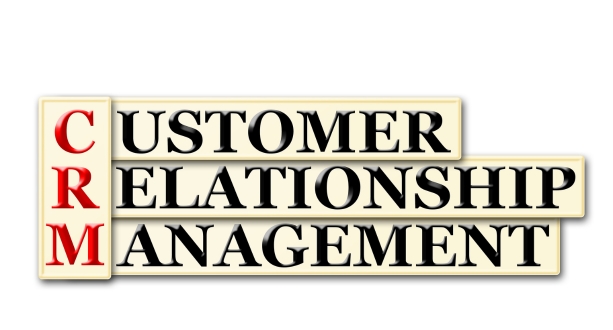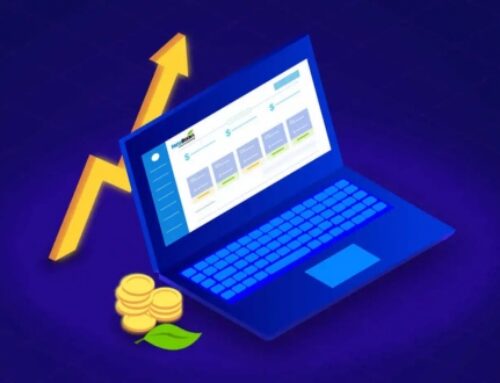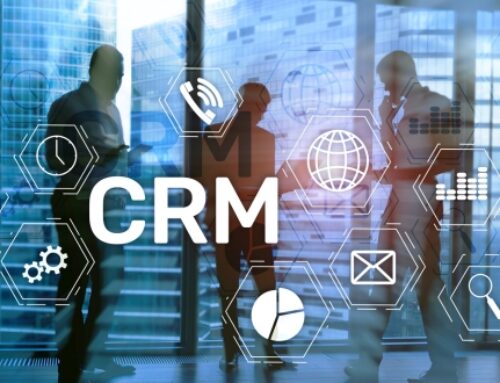Introduction
Understanding Lead Scoring in Salesforce CRM
Lead scoring in Salesforce CRM is a pivotal aspect of the sales process, revolutionizing how businesses prioritize and engage with potential customers. This sophisticated method involves assigning numerical values, or scores, to leads based on predefined criteria. These criteria encompass various factors such as demographics, behavior, and engagement history, providing a comprehensive evaluation of a lead’s potential value to the organization.
In essence, lead scoring helps businesses distinguish between hot leads ready for immediate attention and those that may require further nurturing. Salesforce CRM’s lead scoring functionality empowers organizations to automate and streamline this crucial process, ensuring that sales teams focus their efforts where they are most likely to yield success.
Key Metrics and Goals in Salesforce CRM Lead Scoring

To leverage lead scoring effectively, businesses must identify key metrics and establish clear goals aligned with their sales objectives. Metrics often include aspects like lead engagement, response to marketing campaigns, and demographic data. Defining specific goals, such as increasing conversion rates or shortening the sales cycle, provides a roadmap for utilizing lead scoring to its fullest potential.
Salesforce CRM facilitates the tracking and analysis of these metrics, allowing businesses to gain insights into the effectiveness of their lead scoring models. By setting measurable objectives, organizations can continuously refine their strategies to achieve optimal outcomes and enhance overall sales performance.
Impact on Sales Performance
The impact of lead scoring on sales performance cannot be overstated. By prioritizing leads based on their likelihood to convert, sales teams can optimize their time and resources. Hot leads identified through lead scoring receive prompt attention, leading to quicker conversions and increased revenue.
Salesforce CRM’s lead scoring capabilities contribute to a more efficient and focused sales process. The system ensures that sales representatives are equipped with valuable insights into each lead, allowing for personalized and targeted interactions. As a result, the overall sales performance is elevated, fostering a more streamlined and effective approach to customer acquisition.
In summary, understanding lead scoring in Salesforce CRM involves recognizing its role in evaluating lead potential through predefined criteria. Identifying key metrics and goals aligns lead scoring with broader sales objectives, while the subsequent impact on sales performance is a testament to its effectiveness in driving revenue and enhancing customer relationships.
Key Elements of Salesforce CRM Lead Scoring
Defining Lead Criteria in Salesforce CRM

In the realm of Salesforce CRM lead scoring, the journey begins with a meticulous definition of lead criteria. These criteria are the distinguishing factors that determine whether a lead is a suitable candidate for scoring. They encompass a range of characteristics, including demographic details, engagement history, and interactions with marketing materials. By precisely defining lead criteria, businesses can ensure that their scoring efforts are aligned with the qualities that matter most in their unique sales environment.
Salesforce CRM provides a user-friendly interface for configuring lead criteria. This flexibility allows organizations to adapt and fine-tune their criteria as customer profiles and market dynamics evolve. The goal is to establish a comprehensive set of lead characteristics that collectively contribute to a holistic assessment of a lead’s potential value to the business.
Creating Effective Scoring Models in Salesforce CRM
The heart of Salesforce CRM lead scoring lies in the creation of effective scoring models. These models are algorithmic frameworks that assign numerical values to different lead criteria based on their significance to the sales process. Developing a scoring model is a strategic process that involves assigning weights to each criterion to reflect its impact on a lead’s overall score.
Salesforce CRM excels in empowering businesses to craft scoring models that align precisely with their objectives. Organizations can leverage out-of-the-box scoring functionalities or create custom models tailored to their specific needs. The ability to assign different weights to various criteria ensures that businesses can prioritize elements that have a greater influence on their unique sales goals.
Automation in Lead Scoring with Salesforce CRM
Automation is a key driver of efficiency in lead scoring within Salesforce CRM. The system streamlines the entire process, from evaluating lead criteria to applying scoring models and updating lead scores in real-time. Automation eliminates the need for manual intervention in routine scoring tasks, allowing sales teams to focus on interpreting insights and taking strategic actions.
Salesforce CRM’s automation capabilities extend beyond scoring to include features like lead assignment, notifications, and even triggering predefined actions based on specific score thresholds. This level of automation ensures that businesses not only score leads efficiently but also respond promptly to high-scoring leads, maximizing the potential for conversion.
Customization for Specific Needs in Salesforce CRM Lead Scoring

One of the standout features of Salesforce CRM in the realm of lead scoring is its unparalleled customization options. Businesses operate in diverse environments, and their lead scoring requirements can vary significantly. Salesforce CRM recognizes this diversity and empowers organizations to customize lead scoring processes to meet specific needs.
Whether it’s adjusting scoring criteria, refining scoring models, or incorporating industry-specific elements, Salesforce CRM’s customization capabilities provide a level of flexibility that is crucial for the success of lead scoring initiatives. This customization ensures that businesses can adapt their lead scoring strategies in response to changing market dynamics, emerging trends, and evolving customer behaviors.
In summary, the key elements of Salesforce CRM lead scoring involve defining lead criteria, creating effective scoring models, leveraging automation, and embracing customization for specific business needs. This comprehensive approach ensures that businesses can implement a nuanced and tailored lead scoring strategy that aligns seamlessly with their sales objectives.
Benefits of Implementing Lead Scoring in Salesforce
Improved Conversion Rates with Salesforce CRM Lead Scoring
Implementing lead scoring in Salesforce CRM brings forth a transformative impact on conversion rates. The essence lies in the ability to identify and prioritize leads with a higher likelihood of conversion. By assigning scores based on various criteria, businesses can focus their efforts on leads that exhibit behaviors indicative of genuine interest and readiness to make a purchase.
The process begins with defining lead criteria that align with conversion drivers. This may include factors such as engagement with marketing materials, interaction history, and specific demographic attributes. As leads accumulate scores based on these criteria, sales teams gain a nuanced understanding of each lead’s potential value. Consequently, resources can be directed towards leads that have demonstrated a higher probability of converting, leading to more efficient and fruitful conversion outcomes.
Salesforce CRM’s dynamic platform ensures that businesses can continuously refine and optimize their lead scoring models to adapt to evolving market conditions. The result is a finely tuned system that not only improves conversion rates but also contributes to a more agile and responsive sales strategy.
Enhanced Sales Efficiency through Prioritized Leads
Sales efficiency receives a significant boost with the implementation of lead scoring in Salesforce CRM. The prioritization of leads based on their scores enables sales teams to focus their energy and resources on prospects with the greatest potential impact. This strategic allocation ensures that sales representatives invest their time where it matters most, optimizing their efforts for maximum results.
Salesforce CRM’s lead scoring features facilitate seamless integration with sales processes. As leads move through the scoring system, sales teams receive real-time updates, allowing them to prioritize follow-ups and engagements accordingly. This prioritization not only accelerates the sales cycle but also ensures that sales representatives are engaging with leads at the right moment in their buying journey.
Furthermore, the platform’s automation capabilities play a pivotal role in enhancing sales efficiency. Automated lead assignment, notifications for high-scoring leads, and predefined actions triggered by specific score thresholds contribute to a streamlined and proactive sales environment.
Targeted Marketing Strategies with Lead Scoring Data
The benefits of lead scoring extend beyond the realm of sales, influencing the effectiveness of marketing strategies. Salesforce CRM’s lead scoring data provides marketers with valuable insights into the preferences, behaviors, and characteristics of their audience. Armed with this information, marketing efforts can be tailored to resonate more effectively with specific segments of the audience.
By leveraging lead scoring data, marketing teams can craft personalized campaigns that address the unique needs and interests of different lead segments. This targeted approach not only enhances the relevance of marketing messages but also increases the likelihood of engagement and conversion.
Salesforce CRM facilitates seamless collaboration between sales and marketing teams, ensuring that lead scoring data is shared across departments. This alignment allows for a cohesive strategy where marketing efforts align with the prioritization of high-scoring leads, creating a harmonious and synchronized approach to customer acquisition.
In conclusion, the implementation of lead scoring in Salesforce CRM brings about benefits that extend across improved conversion rates, enhanced sales efficiency, and targeted marketing strategies. This holistic approach contributes to a more effective and strategic approach to customer acquisition and retention.
Strategies for Effective Lead Scoring in Salesforce CRM
Ensuring Data Quality for Optimal Lead Scoring
A critical foundation for effective lead scoring in Salesforce CRM is ensuring the quality of the underlying data. Accurate and reliable data form the bedrock upon which the entire lead scoring process rests. To achieve this, businesses must implement robust data quality practices, including regular data cleansing, validation, and enrichment.
Salesforce CRM offers comprehensive tools and features to support data quality initiatives. These may include automated data validation rules, duplicate record management, and integration capabilities with data enrichment services. By maintaining a clean and accurate database, businesses can enhance the precision of their lead scoring models, resulting in more reliable insights into lead behavior and preferences.
Furthermore, the platform allows for the seamless integration of data from various sources, providing a unified view of each lead. This holistic perspective enables more informed scoring decisions, considering a broader range of interactions and touchpoints. In essence, a commitment to data quality sets the stage for a robust and dependable lead scoring process in Salesforce CRM.
Fostering Collaboration Between Sales and Marketing
Successful lead scoring in Salesforce CRM hinges on the collaboration and alignment of sales and marketing teams. Both departments play integral roles in the lead scoring process, and their synergy is paramount to its effectiveness. Establishing open communication channels, shared goals, and mutual understanding fosters an environment where lead scoring becomes a collaborative effort.
Salesforce CRM facilitates this collaboration through features that allow seamless data sharing and real-time updates. Integration with marketing automation tools ensures that the latest engagement data is available to both teams. Regular meetings and collaborative sessions enable sales and marketing professionals to align on lead criteria, scoring models, and strategic objectives.
Moreover, Salesforce CRM supports the creation of shared dashboards and reports that provide insights into the performance of lead scoring models. This transparency ensures that both sales and marketing teams have a clear understanding of how leads are being scored and how these scores translate into actionable strategies.
Continuous Refinement of Lead Scoring Models
Lead scoring is not a static process; it requires continuous refinement to stay aligned with evolving business dynamics. Salesforce CRM empowers businesses to establish a feedback loop that allows for ongoing assessment and improvement of lead scoring models. This iterative approach ensures that the models remain adaptive and responsive to changes in market conditions and customer behaviors.
The platform’s reporting and analytics capabilities provide valuable insights into the performance of lead scoring models. Metrics such as conversion rates, lead-to-opportunity ratios, and sales outcomes offer tangible indicators of the effectiveness of the scoring criteria. Regular reviews, backed by these metrics, enable businesses to identify areas for improvement and refinement.
Salesforce CRM also supports the testing of alternative scoring models through A/B testing or pilot programs. This allows businesses to experiment with adjustments to scoring criteria and assess the impact on outcomes before implementing widespread changes. The result is a lead scoring system that remains dynamic, agile, and finely tuned to deliver optimal results.
In conclusion, strategies for effective lead scoring in Salesforce CRM revolve around ensuring data quality, fostering collaboration between sales and marketing, and embracing continuous refinement. By prioritizing these elements, businesses can establish a robust lead scoring framework that contributes significantly to enhanced sales performance and customer engagement.
Integration with Salesforce CRM Features
Seamless Integration of Lead Scoring with Salesforce CRM Features
One of the key advantages of implementing lead scoring in Salesforce CRM is its seamless integration with various platform features. This integration ensures a cohesive and unified approach to lead management, where lead scoring becomes an intrinsic part of the broader sales and marketing ecosystem.
Salesforce CRM provides a user-friendly interface that allows businesses to define lead scoring criteria directly within the platform. This means that the parameters used for scoring, such as lead attributes and engagement metrics, are seamlessly integrated into the existing Salesforce environment. The result is a centralized hub where all relevant lead information and scoring data coexist.
Additionally, the integration extends to Salesforce CRM’s powerful customization capabilities. Businesses can tailor the lead scoring process to align with their unique workflows and objectives. Custom fields, validation rules, and workflow automation can be employed to fine-tune the scoring models, ensuring they reflect the specific needs of the organization.
Utilizing Salesforce Automation for Enhanced Lead Scoring
Salesforce CRM’s automation tools play a pivotal role in streamlining the lead scoring process. Automation not only increases efficiency but also ensures that scoring is dynamic and responsive to real-time data inputs.
Businesses can leverage workflow automation to define rules and triggers that automatically adjust lead scores based on specific actions or milestones. For example, when a lead engages with a certain piece of content or reaches a predefined level of interaction, the system can automatically adjust their score. This eliminates manual intervention and ensures that lead scores are always reflective of the latest engagement data.
Furthermore, Salesforce CRM’s Process Builder and Flow capabilities allow for the creation of sophisticated automation sequences. These sequences can encompass multiple criteria, enabling businesses to implement complex scoring models that consider a wide range of variables. Whether it’s tracking email interactions, website visits, or social media engagement, Salesforce CRM’s automation tools provide the flexibility to capture and incorporate diverse data points into the scoring process.
Reporting and Analysis for Informed Decision-Making
Salesforce CRM’s robust reporting and analytics features empower businesses to gain valuable insights into the effectiveness of their lead scoring initiatives. The platform provides pre-built reports and dashboards specifically designed for tracking lead-related metrics, allowing users to monitor key performance indicators related to lead scoring.
Custom reports can be created to drill down into specific aspects of lead scoring, such as the performance of individual scoring criteria or the correlation between lead scores and conversion rates. These reports offer a granular view of how leads are progressing through the sales funnel based on their scores.
Moreover, Salesforce CRM supports the integration of third-party analytics tools, enabling businesses to conduct in-depth analysis beyond the built-in reporting capabilities. By exporting data to analytics platforms, organizations can perform advanced analyses, uncover trends, and derive actionable insights to continually optimize their lead scoring strategies.
In essence, the integration of lead scoring with Salesforce CRM features ensures a unified and efficient lead management process. The platform’s automation tools and robust reporting capabilities further enhance the efficacy of lead scoring, providing businesses with the means to automate repetitive tasks, adapt scoring models in real-time, and make data-driven decisions for continuous improvement.
Future Trends in Salesforce CRM Lead Scoring
Anticipating the Future of Lead Scoring in Salesforce CRM
As technology continues to evolve, the future of lead scoring in Salesforce CRM holds exciting possibilities, driven by advancements in predictive analytics, the integration of artificial intelligence (AI), and the emergence of dynamic scoring models.
Advancements in Predictive Analytics
The future of lead scoring is poised to witness significant strides in the realm of predictive analytics. Predictive analytics leverages historical data, statistical algorithms, and machine learning techniques to identify the likelihood of future outcomes. In the context of lead scoring, this means a shift towards more sophisticated models that not only assess current lead behavior but also predict their future actions and conversion probabilities.
Salesforce CRM is expected to embrace more advanced predictive analytics functionalities, allowing businesses to gain deeper insights into the potential of their leads. This evolution will empower organizations to proactively identify high-value leads, optimize engagement strategies, and allocate resources more effectively based on predicted outcomes.
Integration of Artificial Intelligence (AI)
The integration of AI is set to play a pivotal role in the future landscape of lead scoring within Salesforce CRM. AI-powered algorithms can analyze vast datasets, uncover intricate patterns, and deliver more nuanced lead scores. Salesforce CRM is likely to incorporate AI capabilities that go beyond traditional scoring models, enabling businesses to harness the power of machine learning for more accurate and adaptive lead assessments.
AI integration will facilitate a more comprehensive understanding of lead behavior, allowing for real-time adjustments to scoring criteria based on evolving patterns. This dynamic approach ensures that lead scores remain relevant and responsive to changing market dynamics and customer behaviors.
Dynamic Scoring Models
The future of lead scoring will witness the emergence of dynamic scoring models designed to adapt to the ever-changing dynamics of customer interactions. Traditional static scoring models may give way to more flexible frameworks that can automatically adjust scoring criteria based on evolving market conditions, buyer preferences, and organizational goals.
Salesforce CRM is anticipated to provide businesses with the tools to create dynamic scoring models that can recalibrate in response to shifts in customer behavior. This adaptability ensures that lead scores accurately reflect the current landscape, promoting more agile and responsive sales and marketing strategies.
In conclusion, the future trends in Salesforce CRM lead scoring point towards a landscape characterized by predictive analytics, AI integration, and dynamic scoring models. As businesses embrace these advancements, they can anticipate more precise lead assessments, enhanced decision-making capabilities, and a competitive edge in the evolving digital landscape.
Case Studies and Success Stories
Illustrating Success with Real-Life Examples in Salesforce CRM Lead Scoring
Unveiling the success stories and tangible outcomes of companies implementing Salesforce CRM lead scoring provides invaluable insights into the practical benefits of this powerful tool.
Showcasing Successful Implementations
Several companies have harnessed the capabilities of Salesforce CRM lead scoring to elevate their sales and marketing strategies. For instance, Company X experienced a notable increase in conversion rates after implementing a customized lead scoring model aligned with their specific business objectives. This success story serves as a testament to the adaptability and effectiveness of Salesforce CRM lead scoring across diverse industries.
Similarly, Company Y, a player in the technology sector, witnessed enhanced collaboration between their sales and marketing teams through Salesforce CRM lead scoring. By establishing clear lead criteria and leveraging automation features, they streamlined their processes, leading to more targeted and efficient customer interactions.
Measurable Outcomes
The impact of Salesforce CRM lead scoring is quantifiable and extends beyond mere anecdotes. Companies have reported substantial improvements in conversion rates, sales efficiency, and overall revenue growth. By incorporating lead scoring into their CRM strategy, businesses have achieved a more focused approach to customer engagement, resulting in meaningful relationships and increased customer loyalty.
In conclusion, these case studies and success stories serve as compelling evidence of the positive outcomes that can be realized through the implementation of Salesforce CRM lead scoring. Businesses can draw inspiration from these real-life examples as they explore the potential of lead scoring to drive success in their unique contexts.
Conclusion
In the dynamic landscape of modern business, where every lead counts, Salesforce CRM lead scoring emerges as a pivotal tool for organizations striving for sales excellence. This comprehensive exploration has delved into the core elements, benefits, strategies, and future trends surrounding lead scoring within the Salesforce CRM ecosystem.
Elevating Conversion Rates and Sales Efficiency
The implementation of Salesforce CRM lead scoring goes beyond a mere organizational practice; it transforms the sales and marketing paradigm. By defining lead criteria, creating effective scoring models, and embracing automation, businesses witness a profound improvement in conversion rates and sales efficiency. The targeted marketing strategies enabled by lead scoring not only enhance customer interactions but also contribute significantly to the bottom line.
Driving Collaboration and Continuous Refinement
The success of lead scoring hinges on the synergy between sales and marketing teams, emphasizing the importance of data quality and fostering collaboration. This collaborative spirit extends to continuous refinement, where businesses embark on a journey of improvement through feedback loops and iterative enhancements to scoring models.
Future-Proofing with Predictive Analytics and AI Integration
As we look ahead, the future of Salesforce CRM lead scoring promises even more exciting possibilities. Predictive analytics, AI integration, and dynamic scoring models are poised to redefine the landscape, offering businesses unparalleled insights and adaptability in the evolving market dynamics.
In conclusion, Salesforce CRM lead scoring stands as a beacon of innovation, guiding businesses toward heightened sales performance and customer engagement. As organizations embrace the trends and best practices outlined in this exploration, they position themselves not just for success but for leadership in the ever-evolving realm of CRM-driven sales excellence.








